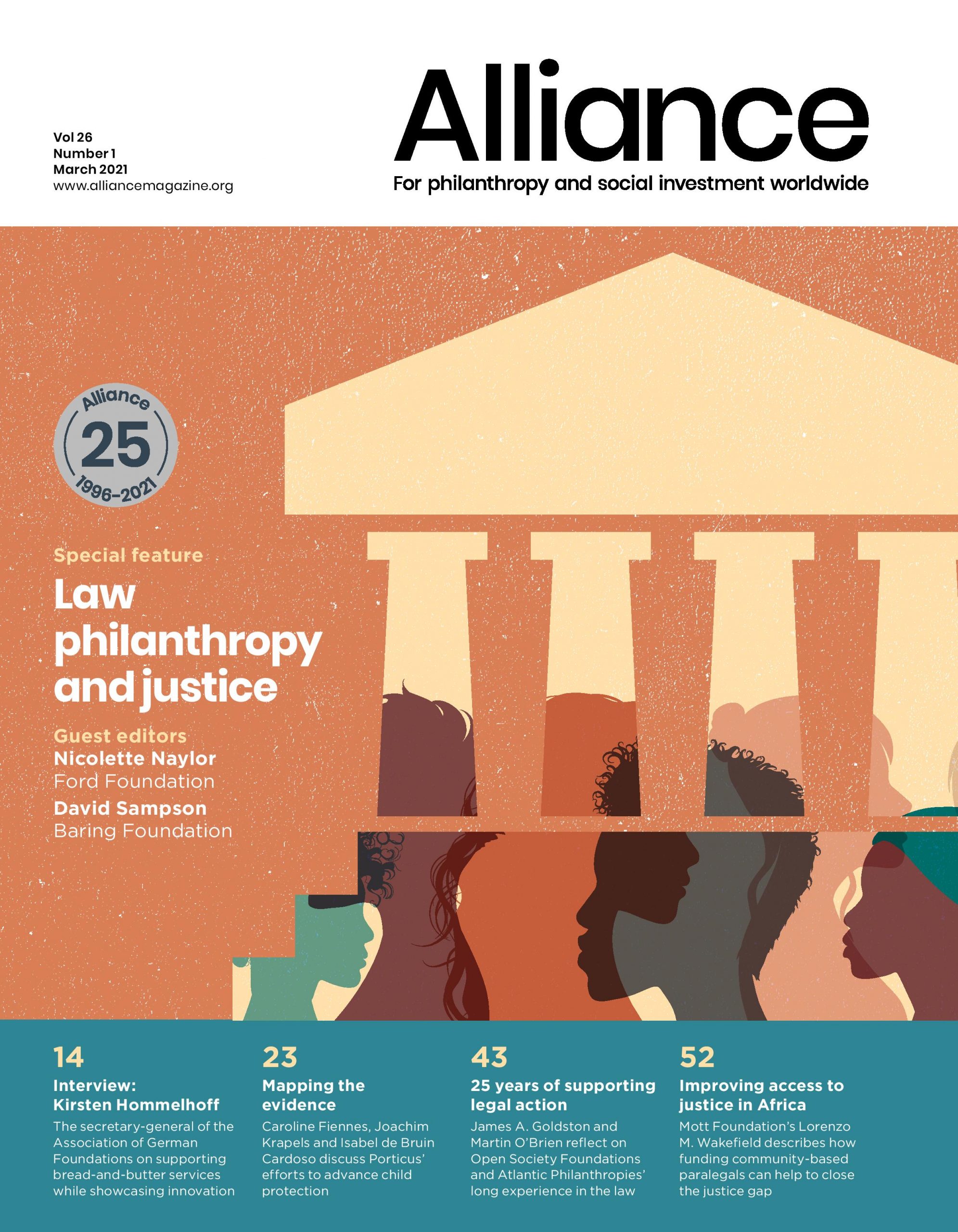Laws prescribe the rights and duties of citizens; the courts provide the means of upholding the one and enforcing the other. Too often, though, laws are inadequate to protect the rights of all citizens, or access to justice though the courts becomes the preserve of the wealthy. As a result, there is a considerable role for philanthropy to play in both supporting campaigns to change or introduce legislation and enabling groups to uphold their rights under existing laws. The following is a snapshot of funders’ involvement in the law.
![]() TrustLaw is the Thomson Reuters Foundation’s global pro bono legal programme, connecting NGOs and social enterprises with law firms and corporate legal teams to provide them with free legal assistance. It also provides legal research and training courses worldwide. It runs, for example, legal training courses on social enterprise and impact investing as well as capacity-building workshops and webinars to offer practical guidance on legal issues relevant to NGOs and social enterprises. Its research helps equip NGOs to pursue effective policy reform and advocacy. It is also providing dedicated pro bono support to help NGOs cope with the effects of Covid-19.
TrustLaw is the Thomson Reuters Foundation’s global pro bono legal programme, connecting NGOs and social enterprises with law firms and corporate legal teams to provide them with free legal assistance. It also provides legal research and training courses worldwide. It runs, for example, legal training courses on social enterprise and impact investing as well as capacity-building workshops and webinars to offer practical guidance on legal issues relevant to NGOs and social enterprises. Its research helps equip NGOs to pursue effective policy reform and advocacy. It is also providing dedicated pro bono support to help NGOs cope with the effects of Covid-19.
trust.org/trustlaw
![]() Founded in 2015 by Alberto Alemanno, The Good Lobby is a non-profit committed to equalising access to power. It trains and help citizens to influence major policy decisions, hold their political representatives accountable and share new solutions with them, in the process, demystifying and promoting lobbying as a legitimate practice of participatory democracy. It provides a school for individuals, NGO advocates, grassroots movements, social entrepreneurs and progressive companies, exposing them to the expertise of public affairs consultants, lawyers, business professionals and academics. It also runs an incubator for promising citizen-driven projects and campaigns for causes that enhance social and environmental justice, and counter corruption and inequality.
Founded in 2015 by Alberto Alemanno, The Good Lobby is a non-profit committed to equalising access to power. It trains and help citizens to influence major policy decisions, hold their political representatives accountable and share new solutions with them, in the process, demystifying and promoting lobbying as a legitimate practice of participatory democracy. It provides a school for individuals, NGO advocates, grassroots movements, social entrepreneurs and progressive companies, exposing them to the expertise of public affairs consultants, lawyers, business professionals and academics. It also runs an incubator for promising citizen-driven projects and campaigns for causes that enhance social and environmental justice, and counter corruption and inequality.
Subscribe now from only £45 a year!
This article is only available for our subscribers
Existing users can login here





